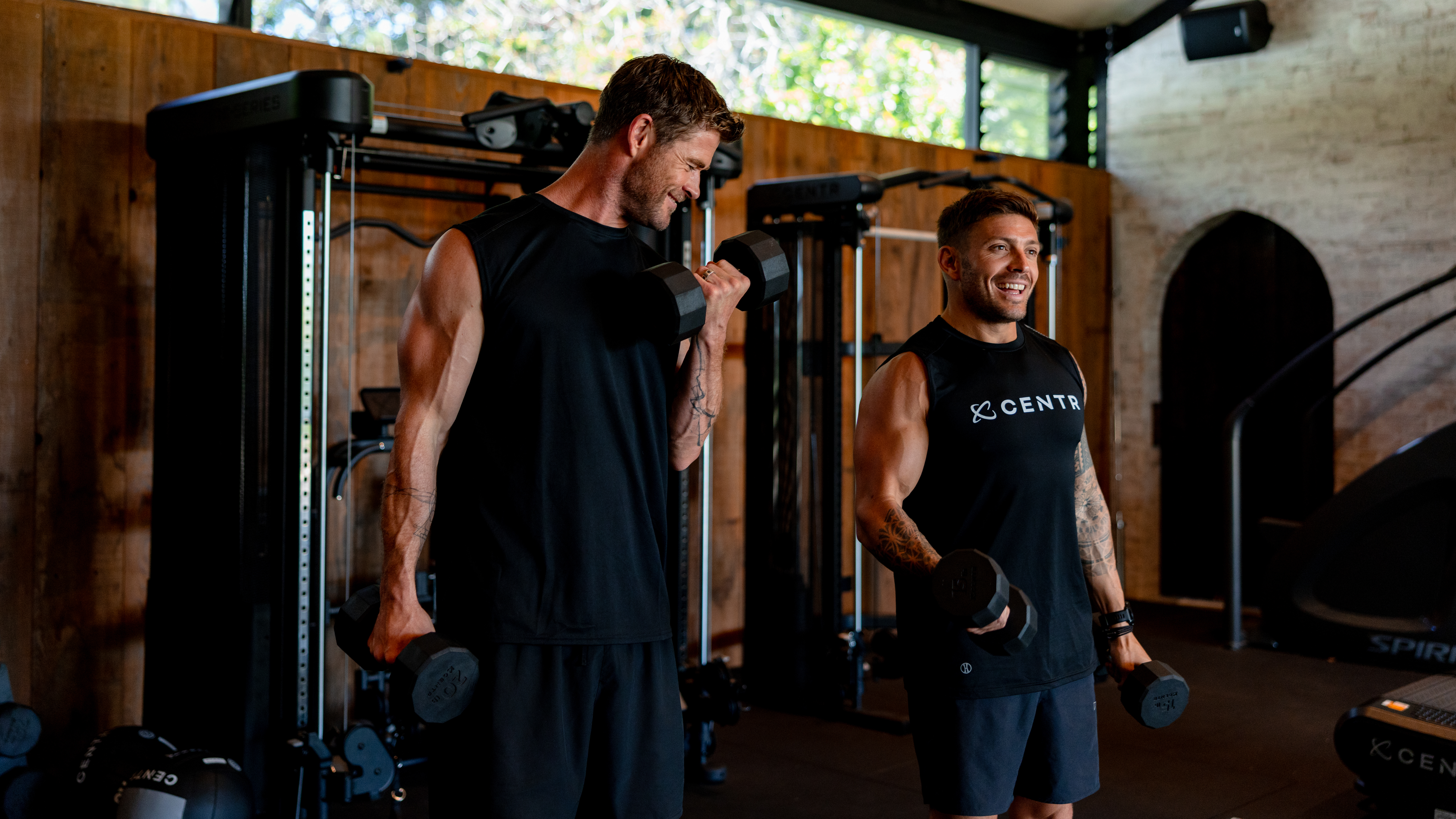Do multivitamins work? Here’s what a nutritionist has to say
Do multivitamins work or is it better to take individual supplements? We find out which option is better and whether you need to supplement your diet at all

Do multivitamins work? Getting enough vitamins and minerals is crucial in order for our bodies to function, from fighting off infections to maintaining our bone health. But while you can absorb vitamins and minerals from the foods you eat, some people also choose to supplement with vitamins and minerals alongside their diet.
Thought to be a convenient fix-all solution, multivitamins have become a popular option, as opposed to taking singular vitamin supplements like vitamin C or the best vitamin D supplements. But do multivitamins work to nourish your body in the same way regular vitamins do?
According to registered nutritionist Rhiannon Lambert, vitamin supplements are best used to support any gaps in the diet. For example, people who follow a plant-based diet might take iron or the best vitamin B12 supplements because many vegan foods don’t contain these nutrients.
In the UK, the NHS recommends that adults should take a vitamin D supplement in a daily 10mcg dose during the winter months (September to April) when exposure to sunlight is lower, while the CDC in the US recommends 5mcg for those up to age 50, 10mcg for those aged 51-70 years and 15mcg for those older than 70.
It seems like a multivitamin would ensure that you’re covered nutritionally, even if you weren’t getting all the vitamins and nutrients you needed for your diet. But it might not be as simple as that. Check out our guide to 10 foods that are rich in vitamins or read on to hear what Lambert had to say about multivitamins and how effective they are.
What is a multivitamin?
A multivitamin is a type of dietary supplement that contains a number of essential vitamins and minerals. There are 13 essential vitamins that the body needs including vitamins A, B, C, D, E and K. Most multivitamins contain all 13. “The aim is to support the optimal and healthy functioning of the body, however depending on the brand of multivitamin you decide to take will determine the vitamins and minerals that are present in the supplement,” Lambert explains.

Lambert is a registered nutritionist, best-selling author and podcast host. In 2016 she founded Rhitrition, a renowned Harley Street clinic, which specialises in weight management, sports nutrition, eating disorders, and pre- and post-natal nutrition. She obtained a first-class degree in Nutrition and Health, a Master’s degree in Obesity, Risks and Prevention, and diplomas in sports nutrition, pre- and post-natal nutrition.
Do multivitamins work?
You might be confused about how your body absorbs 13 vitamins from one tiny pill. According to Lambert, how well you absorb vitamins and minerals from either single vitamin capsules or a multivitamin will vary between individuals for a number of different reasons.
Get the Fit&Well Newsletter
Start your week with achievable workout ideas, health tips and wellbeing advice in your inbox.
“For example, the amount of fat you consume can affect how well you absorb the fat soluble vitamins A, D, E K,” she says, as an example.
This means that different people will have different levels of success when it comes to properly absorbing the nutrients from multivitamins. However, most people will be getting enough vitamins and nutrients from their diet, which means that your body might not need to absorb the vitamins from a supplement.

“A lot of the time people who take a multivitamin don’t actually need to have the large quantities of vitamins that are often found within the supplements or even take one at all,” Lambert explains. “This is because they are getting adequate amounts from dietary sources and all this means is that the nutrients not absorbed by the body are excreted as waste.”
And even if your body is in need of particular vitamins, it still might be tricky to absorb them from a multivitamin. “When eating foods or taking a multivitamin, vitamins and minerals enter your body, however you may not absorb the full dose when consumed together as they don’t always work in synergy and are competing for receptors,” Lambert says.
For this reason, it may be more beneficial to look at your diet in the first instance to understand where you may be lacking when it comes to vitamins and nutrients and then taking a singular supplement that contains the relevant nutrient rather than a multivitamin, according to Lambert.

Scientific research also suggests that multivitamins might not be worth your money. A review of 18 studies published in Circulation: Cardiovascular Quality and Outcomes found that multivitamins did not reduce risk for cardiovascular disease mortality or stroke mortality. Another study published in the Annals of Internal Medicine looking at the long-term use of multivitamins found that they also have minimal impact on brain function, as they did not reduce the risk for participants’ mental declines such as memory loss or slowed-down thinking.
One of the most important things to prioritize whether you’re buying multi or singular vitamins is that you choose good quality supplements. “When it comes to supplements, less is more, so it’s always good to check the labels before purchasing and taking them to make sure that they do not contain any unnecessary ingredients, such as filler and bulking agents,” Lambert says. “When researching which supplements to use, ensure you are getting them from a reputable source or healthcare professional and that their claims are supported by scientific evidence.”
Do you need to take supplements?
Supplements have become hugely popular, but, surprisingly, Lambert stresses that they aren’t necessary for most healthy people. “Vitamin supplements are often taken to help support any gaps that there may be in the diet. At Rhitrition and Rhitrition+ we will always advocate a food first philosophy and in most cases as long as a healthy, balanced, and varied diet is consumed there should be no need to take a dietary supplement,” she says.
However some people do suffer from vitamin and nutrient deficiencies or could benefit from supplements for their overall health. As well as recommending that everyone takes a vitamin D supplement in the winter and that people following a plant-based diet supplement with any nutrients their diet lacks, Lambert also suggests that pregnant women should take a daily 400mcg folic acid supplement to help reduce the risk of neural tube defects, which is also recommended by the CDC.
Other than that, you should speak to your doctor if you think you might have a particular deficiency, as they will be able to run tests to determine this and recommend appropriate vitamins if you are. Symptoms of vitamin deficiencies include feeling tired or dizzy, according to Lambert.
She notes that there are some nutrient levels that are notoriously difficult to measure like calcium, which means if you are deficient in a less common vitamin, this might require further testing. Either way, your doctor will be able to help you figure out whether or not you have any deficiencies and recommend the supplements or diet changes required to improve your health.
Alice Porter is a freelance journalist covering lifestyle topics including health, fitness and wellness. She is particularly interested in women's health, strength training and fitness trends and writes for publications including Stylist Magazine, Refinery29, The Independent and Glamour Magazine. Like many other people, Alice's personal interest in combining HIIT training with strength work quickly turned into a CrossFit obsession and she trains at a box in south London. When she's not throwing weights around or attempting handstand push-ups, you can probably find her on long walks in nature, buried in a book or hopping on a flight to just about anywhere it will take her.
-
 Build blockbuster arms and abs with Chris Hemsworth's go-to dumbbell circuit
Build blockbuster arms and abs with Chris Hemsworth's go-to dumbbell circuitAll you need are adjustable dumbbells and 20 minutes
By Sam Rider Published
-
 Forget crunches—if I wanted to improve core strength I'd do this neck-friendly Pilates workout
Forget crunches—if I wanted to improve core strength I'd do this neck-friendly Pilates workoutAnd it takes just five minutes
By Maddy Biddulph Published
-
 Best vitamin D supplements
Best vitamin D supplementsBUYING GUIDE Take one of the best vitamin D supplements to give your mood a helping hand this winter
By Alice Ball Last updated
-
 Six high fiber foods you should be eating
Six high fiber foods you should be eatingEnjoy these high fiber foods for better digestion and a healthier heart
By Anna Gora Last updated
-
 Easy low carb diet plan to help you eat well
Easy low carb diet plan to help you eat wellNutrition Looking for a low carb diet plan? We asked a dietician to share everything you need to know
By Alice Porter Last updated
-
 Collagen vs whey protein: what’s the difference?
Collagen vs whey protein: what’s the difference?Protein supplements are incredibly popular, but which type is best for your health? A dietician weighs up the pros and cons of collagen vs whey protein
By Alice Porter Published
-
 Foods for energy: what to eat to combat tiredness and fatigue
Foods for energy: what to eat to combat tiredness and fatigueFeeling tired? You may think that the only way to revive yourself is by going back to bed, but these foods for energy could help you feel full of life
By Alice Porter Published
-
 11 high protein desserts to satisfy your sweet tooth
11 high protein desserts to satisfy your sweet toothThese tasty high protein desserts will help to fill you up and build lean muscle
By Maddy Biddulph Last updated
-
 Which vitamins help anxiety?
Which vitamins help anxiety?Wondering which vitamins help anxiety? Here's everything you need to know
By Meg Walters Published
-
 What is vegan collagen?
What is vegan collagen?Collagen is thought to support hair, skin and joint health — but what is vegan collagen and how can you reap the benefits of it on a plant-based diet?
By Alice Porter Published